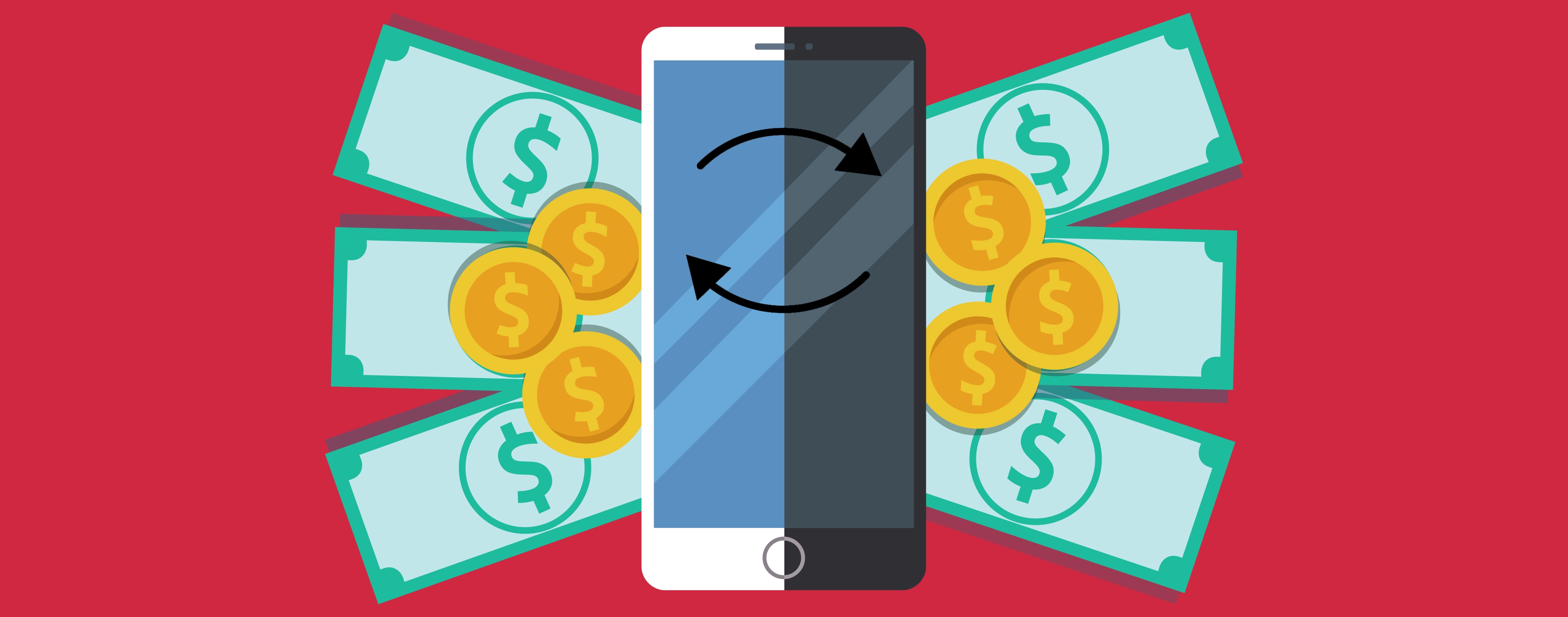Published Under: Budgeting Fraud Tips Mobile Services

The Do's and Don'ts of P2P Money Apps
Managing and moving your money has become easier than ever, thanks to the use of money transfer apps, also called peer-to-peer (P2P) payment apps. However, with convenience comes the responsibility of ensuring the security of your financial data. To make the most of money apps while safeguarding your finances, it's essential to understand the do's and dont's.
The Do’s:
- Choose Reputable Apps: Before downloading any money management or P2P Payment app, conduct thorough research. Look for reviews, ratings, and user feedback to gauge its reliability, security measures, and effectiveness in managing finances. Choose from established financial institutions or well-known developers with a solid track record of security and user privacy.
- Turn on security features: Enable Two-Factor Authentication (2FA), biometric locks (such as fingerprint, passcode, and face scan), and the “find my device” feature in your phone’s settings. Enabling all of these security features is just adding extra layers of security for your devices and your money. It’s also a good idea to turn on notifications. Enabling alerts can help you quickly monitor your account when a transaction occurs and quickly detect any unauthorized or suspicious activity.
- Use Strong Passwords: When it comes to your money, the stronger the better. Avoid using the same password across multiple accounts. Consider using a (legit) password manager to securely manage your logins.
- Only send money to people you actually know: If you send money to a stranger (or someone you think you know from an online relationship) and don’t get what you paid for, it’s highly unlikely you’ll get your money back. Just one typo could send money to the wrong person. Be sure to confirm and verify the name/username and phone number before hitting send.
- Regularly Update Apps: Keeping your money apps up to date helps ensure the security of the app with any recent patches.
The Don’ts:
- Don’t Carry a Balance: Scammers can find ways to siphon the balance idling on your payment app, and if they do, that money may be lost forever. It’s better to keep all your funds at the credit union, which is insured by NCUA.
- Don't Use Public Wi-Fi: Avoid accessing your money apps on public Wi-Fi networks, as they are more susceptible to hacking and eavesdropping.
- Don't Share Personal Information: Never share sensitive information such as verification codes, account passwords, Social Security numbers, or financial details over unsecured channels or with unknown individuals or entities.
- Think carefully about using P2P payment apps for business transactions. It’s okay to use P2P payment apps to pay small businesses you know and trust. For other businesses, it’s ideal to use your digital wallet, or credit card, which offers additional security features against fraud.
- Don't Panic but Act Swiftly: In the event of a suspected compromise, remain calm but take immediate action to secure your accounts, such as changing passwords, freezing accounts, and notifying financial institutions.
How To Avoid Sending Money to a Scammer (Consumer FTC)
“Mobile payment apps can be a convenient way to send and receive money with your smartphone. These apps have become very popular — and scammers may try to use them to steal your money. Find out how mobile payment apps work and how to avoid sending money to a scammer.” (Consumer FTC)
Some scammers may try to trick you into sending them money through a mobile payment app. That’s because they know once you do, it’s hard for you to get your money back.
Keep this advice in mind if you send money through a mobile payment app:
- Don’t send a payment to claim a prize or collect sweepstakes winnings.
- Don’t give your account credentials to anyone that contacts you.
- Protect your account with multi-factor authentication or a PIN.
- Before you submit any payment, double-check the recipient’s information to make sure you’re sending money to the right person.
- If you get an unexpected request for money from someone you do recognize, speak with them to make sure the request is from them — and not a hacker who got access to their account.
Common P2P Payment Scams to Watch Out For
While it’s impossible to mention every type of scam out there these days, here are a few of the most common ones that trigger red flags:
- Pet Scams—If you visit the Better Business Bureau’s website (BBB.org), you’ll find a slew of pet scam reports where people have lost hundreds of dollars to fraudsters on P2P payment apps.
- Event Tickets— ‘merchants’ claim they’ll sell you concert or event tickets and say they only take payments through a P2P payment app. If you see such a message, it’s best to walk away.
- Prize Scams—If you receive a communication that says you’ve won a prize and that you can receive it with a small transaction fee through a P2P payment app, it’s a scam.
- Malicious Apps—If you were to download an app with malicious software, the fraudster could potentially record your finger taps to identify your passwords or account credentials. (Check back up in our Do’s section before downloading any new money apps).
- Romantic Imposters – After building your trust romance scammers then lure you to send money to them through a P2P payment app for an emergency. These types of scammers also may try to involve you in a cryptocurrency or pyramid scheme promising that you’ll make a “lucrative investment.” Either way, your money will be long gone.
By keeping these do's and don'ts in mind, you can leverage money apps effectively to manage and send money while protecting yourself against any security issue.
Sources: https://consumer.ftc.gov/articles/mobile-payment-apps-how-avoid-scam-when-you-use-one
Comments